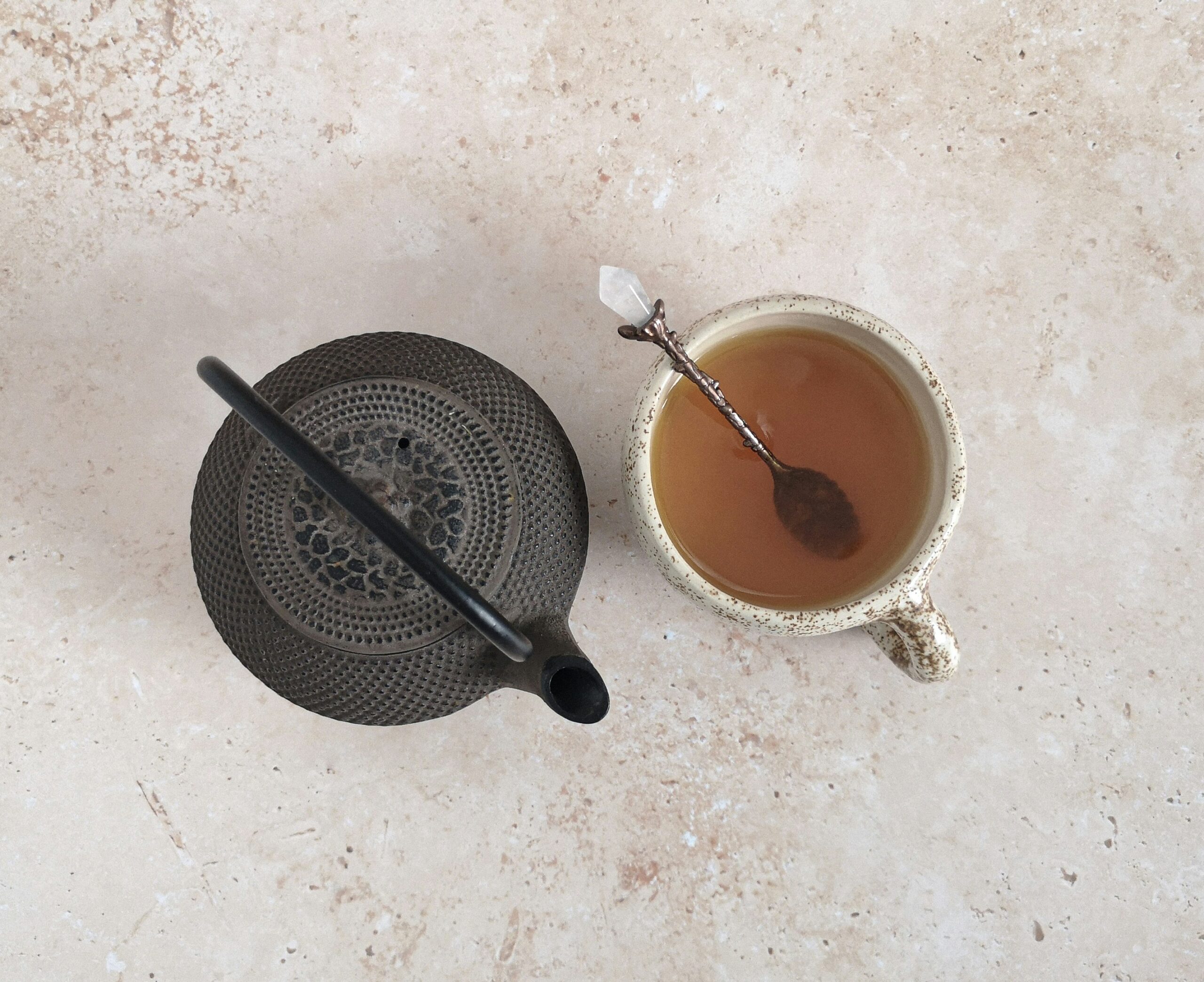Pregnancy is a time filled with joy and excitement, but it can also bring about anxiety. It’s natural to feel worried, especially with the changes your body goes through. Many women seek natural remedies for anxiety during pregnancy to ensure both their well-being and that of their baby. Herbal teas, like chamomile and lavender, can help soothe your nerves without causing harm.


In addition to herbal remedies, mindfulness and relaxation techniques can significantly reduce anxiety. Practising meditation, deep breathing exercises, and yoga are beneficial ways to manage stress and anxiety levels. These activities not only calm your mind but also keep your body active and healthy.
Maintaining a balanced diet is crucial for mental health during pregnancy. Foods rich in omega-3 fatty acids, such as salmon and flaxseeds, can boost mood and reduce anxiety. Supplements like magnesium and folic acid are also valuable. Always consult with your healthcare provider before starting any new supplement to ensure it’s safe for you and your baby.
Key Takeaways
- Herbal teas can safely reduce anxiety during pregnancy.
- Mindfulness exercises like meditation and yoga help manage stress.
- A balanced diet supports mental health and reduces anxiety.
Understanding Anxiety in Pregnancy
Anxiety during pregnancy can be influenced by several factors, including hormonal changes and personal or family history of anxiety. Recognising the symptoms and understanding the causes and risk factors can help manage this condition effectively.
Symptoms of Anxiety
You may notice various symptoms of anxiety during pregnancy. Common signs include:
- Excessive worry about your baby’s health
- Irritability or restlessness
- Trouble concentrating
- Sleep disturbances
Physical symptoms can also appear, such as:
- Increased heart rate
- Shortness of breath
- Muscle tension
These symptoms can vary in intensity and may affect your daily activities.
Causes of Anxiety During Pregnancy
Hormonal changes play a significant role in anxiety during pregnancy. Shifts in oestrogen and progesterone levels can affect mood and increase stress.
Other causes include:
- Fear of the unknown, such as concerns about childbirth or motherhood
- Health concerns for both mother and baby
- Personal stressors like financial worries or relationship issues
Understanding these causes can help in seeking appropriate support and treatment.
Risk Factors for Anxiety
Certain risk factors can make you more prone to anxiety during pregnancy. These include:
- Personal or family history of anxiety or depression
- Unplanned or high-risk pregnancy
- Lack of social support
- Previous pregnancy loss or complications
Other contributing factors are:
- Age (younger mothers may experience more anxiety)
- Socioeconomic status
- Previous mental health issues
Knowing these risk factors can aid in early identification and management, ensuring better outcomes for both you and your baby.
The Impact of Diet on Anxiety
Your diet can play a significant role in managing anxiety levels during pregnancy. Consuming too much sugar or not staying properly hydrated can increase feelings of anxiety. On the other hand, maintaining a healthy diet rich in essential nutrients can help reduce anxiety symptoms.
Sugar Intake and Anxiety
High sugar intake can lead to spikes and crashes in blood sugar levels, which can trigger anxiety and mood swings. During pregnancy, it’s essential to limit your intake of sugary foods and beverages. Choose natural sugars found in fruits over processed sugars. Opt for whole grains and fibre-rich foods that help maintain stable blood sugar levels. Reducing sugar consumption can contribute to a more stable mood and help in managing anxiety effectively.
Healthy Diet for Reducing Anxiety
A balanced diet rich in omega-3 fatty acids, magnesium, and vitamin D can support mental health during pregnancy. Omega-3s found in fish like salmon and walnuts help reduce inflammation and support brain function. Magnesium in leafy greens, nuts, and seeds aids in relaxing muscles and reducing anxiety. Exposure to sunlight and consuming vitamin D-rich foods like eggs and fortified dairy products can boost your mood. Incorporating these nutrients into a healthy diet can help lower anxiety levels.
Hydration and Mental Health
Staying hydrated is crucial for mental health. Dehydration can lead to headaches, fatigue, and irritability, which can exacerbate anxiety symptoms. Pregnant women should aim to drink plenty of water throughout the day. Herbal teas and water-rich fruits like cucumbers and watermelons can also help you stay hydrated. Avoid excessive caffeine, as it can increase anxiety and interfere with your sleep. Maintaining proper hydration supports overall well-being and can help reduce anxiety.
Role of Physical Activity
Engaging in physical activity during pregnancy can help reduce anxiety, improve your mood, and strengthen your body. Understanding the specific benefits of different types of exercise can help you choose the best option for maintaining mental and physical well-being.
Exercise and Endorphins
Exercise boosts the production of endorphins, which are natural mood lifters. These chemicals help to reduce stress and anxiety, making you feel happier and more relaxed. Even moderate exercise like brisk walking or prenatal yoga can significantly increase endorphin levels.
Endorphins also help in managing pain, which is beneficial during pregnancy. A regular exercise routine can help you build physical strength, which might make labour easier. Aim for at least 30 minutes of moderate exercise most days of the week.
Walking and Yoga
Walking is one of the simplest and safest exercises for pregnant women. It helps to improve circulation, manage weight, and boost mood. Walking can be easily incorporated into your daily routine without the need for special equipment or a gym membership.
Yoga, particularly prenatal yoga, combines physical postures with deep breathing and relaxation techniques. It helps to improve flexibility, strength, and mental clarity. Prenatal yoga classes are designed to cater to the needs of pregnant women and offer a safe and supportive environment. You can find more about the impact of yoga on anxiety in pregnancy here.
Swimming for Relaxation
Swimming is an excellent form of exercise during pregnancy because it is low-impact and supports your body weight. The buoyancy of the water makes it easier to move without putting stress on your joints. Swimming helps to improve cardiovascular health, muscle tone, and overall stamina.
The rhythmic movement and breathing involved in swimming can also serve as a form of meditation, helping to reduce anxiety and promote relaxation. Whether you swim laps or participate in a water aerobics class, the water provides a soothing environment that can alleviate stress and tension. Swimming is one of the many benefits mentioned in the guidelines for physical activity during pregnancy.
Complementary Therapies
Exploring natural remedies during pregnancy can provide relief from anxiety. This section will look at acupuncture, massage therapy, and aromatherapy as safe methods for pregnant women.
Acupuncture for Anxiety Relief
Acupuncture involves inserting fine needles into specific points on the body. It’s believed to balance energy and has been shown to reduce anxiety. Many pregnant women consider this natural remedy because it is non-invasive.
Studies indicate that acupuncture can help lower anxiety levels during pregnancy. It is important to seek a qualified practitioner who has experience with pregnant clients. Sessions should be conducted in a safe, clean environment.
This method can complement other treatments and is generally well-tolerated. Always consult your healthcare provider before starting any new therapy.
Massage Therapy Benefits
Massage therapy is another effective way to reduce anxiety. Special techniques are used to ensure the safety of both mother and baby. Pregnancy massages typically focus on alleviating stress, muscle tension, and improving circulation.
Regular massage sessions can help regulate hormones such as cortisol, which is linked to stress. It also promotes relaxation and better sleep. Using safe oils like jojoba or almond oil can enhance the benefits.
Be sure to choose a therapist trained in prenatal massage. They will avoid certain pressure points and positions, ensuring your comfort and safety during the session.
Aromatherapy and Essential Oils
Aromatherapy involves using essential oils to promote psychological and physical well-being. Lavender oil is particularly known for its calming effects. Studies suggest that lavender can reduce anxiety and improve sleep quality.
Essential oils can be used in diffusers, baths, or through topical application with a carrier oil. It is crucial to use only high-quality, pure oils and to follow safety guidelines. Not all essential oils are safe during pregnancy, so proper research and consultation are essential.
Incorporating aromatherapy into your routine can provide a soothing atmosphere, helping you manage anxiety effectively. Always dilute essential oils to avoid skin irritation and consult a healthcare professional beforehand.
Mindfulness and Relaxation Techniques
Using mindfulness and relaxation techniques can help manage stress and anxiety during pregnancy. These practices improve mental health, reduce physical tension, and provide coping mechanisms.
Meditation and Deep Breathing
Meditation involves focusing your mind and eliminating distractions. Practising meditation daily can help you manage stress by promoting relaxation. Deep breathing, often used in meditation, calms your nervous system. To start, find a quiet place, sit comfortably, and close your eyes. Breathe deeply and slowly, focusing on each breath. This process reduces anxiety and lowers your heart rate.
Progressive Muscle Relaxation
Progressive muscle relaxation involves tensing and then relaxing different muscle groups. This can help reduce physical tension that often accompanies anxiety. Begin by tensing the muscles in your toes and progressively work your way up to your neck and head. Hold each muscle group for a few seconds before slowly releasing. This technique promotes body awareness and can improve your sleep quality.
Guided Imagery
Guided imagery is a relaxation technique where you imagine peaceful settings or scenarios. This practice can distract you from anxiety-provoking thoughts. To use guided imagery, listen to a recording or a meditation app specifically designed for this purpose. Visualise a calm, serene place, fully engaging all your senses. This technique can help lower your stress levels and enhance your overall sense of well-being.
Lifestyle Adjustments for Anxiety Management
Managing anxiety during pregnancy involves prioritising several key lifestyle changes. Ensuring quality sleep, building a strong support system, and spending time in nature are vital steps to promote mental well-being.
Prioritising Sleep
Getting enough sleep is essential for managing anxiety. Aim for 7-9 hours of sleep each night. Establish a regular sleep routine by going to bed and waking up at the same time every day.
Avoid caffeine and heavy meals before bedtime. Create a calming bedtime ritual such as reading a book or taking a warm bath. Make your sleeping environment comfortable and dark, and limit screen time before bed. Quality sleep helps your body and mind recharge, reducing anxiety levels.
Creating a Support System
A strong support system is crucial for managing anxiety during pregnancy. Lean on your partner, family, and friends for emotional support.
Join pregnancy or anxiety support groups where you can share experiences and concerns. Open communication is key; let others know how you feel and what you need from them. Don’t hesitate to seek professional help if you feel overwhelmed. A therapist or counsellor can provide strategies to manage anxiety. Remember, you don’t have to go through this alone.
Time with Nature and Fresh Air
Spending time outdoors can significantly reduce anxiety. Fresh air and natural surroundings have calming effects on the mind.
Try to incorporate daily walks or activities in parks or gardens. Engage in light exercises like yoga or meditation in natural settings. Exposure to sunlight helps regulate your mood by boosting serotonin levels. Nature provides a peaceful environment away from daily stressors, making it easier to relax and manage anxiety. Prioritising these outdoor moments can greatly benefit your mental health during pregnancy.
Herbal Remedies and Supplements
During pregnancy, many women look for ways to manage anxiety naturally. Herbal teas, supplements like magnesium and omega-3 fatty acids, and specific herbs can help. Here are some to consider.
Herbal Teas for Calmness
Herbal teas can be soothing and help you relax. Chamomile tea is popular for its calming effects. It contains compounds that may help reduce anxiety and improve sleep.
Peppermint tea is another good option. It can ease tension and aid digestion, which can indirectly reduce stress. Make a cup before bed or whenever you feel anxious.
Valerian root tea can also promote relaxation and help with sleep issues. It’s mild and often used as a natural sedative. However, consult your healthcare provider before trying valerian root, as it may not be suitable for everyone.
Supplements Affecting Mood
Certain supplements can positively impact your mood during pregnancy. Magnesium is known for its calming effects on the nervous system. It helps control stress hormones and can improve sleep quality. You can find magnesium in leafy greens, nuts, and seeds.
Omega-3 fatty acids are another important supplement. They support brain health and can help manage anxiety and depression. Fish oil supplements are a common source of omega-3s. Look for those that are free from mercury and other contaminants.
Prenatal vitamins often include key nutrients that support mental health, like vitamin D, B vitamins, and folic acid. These can help reduce the risk of anxiety and depression during pregnancy.
Lemon Balm for Irritability and Restlessness
Lemon balm is an herb from the mint family known for its calming properties. It can help with irritability, restlessness, and mild anxiety. You can find lemon balm in teas, tinctures, and capsules.
Lemon balm tea is easy to make and can be a daily routine to help keep stress levels down. Drinking it in the evening can help you unwind and prepare for a restful night’s sleep.
For a stronger effect, you might use lemon balm extract. Follow dosage instructions carefully and consult your doctor, especially if you are taking other medications.
Using these herbal remedies and supplements can provide natural support against anxiety during pregnancy. Always seek advice from a healthcare provider before starting any new treatment.
RELATED: Best Herbal Tea For Energy: Top Choices To Boost Your Day
Professional Healthcare and Therapies
When dealing with anxiety during pregnancy, seeking help from healthcare professionals can be crucial. Different therapies and medications can ease anxiety effectively.
Counseling for Emotional Support
Counseling can provide you with a safe space to express your feelings and fears. It allows you to talk about your anxieties with a trained healthcare provider. This professional can help you develop coping strategies and offer support throughout your pregnancy.
Group therapy with other pregnant women can also be beneficial. Hearing about others’ experiences can give you a sense of community and understanding. Sessions may focus on relaxation techniques, breathing exercises, and other methods to manage anxiety.
Cognitive Behavioral Therapy
Cognitive Behavioral Therapy (CBT) is an effective treatment for anxiety. It involves identifying and changing negative thought patterns that can cause anxiety. A therapist guides you through exercises that help alter your thinking and behaviour.
CBT can help you understand triggers for your anxiety and how to manage them. By focusing on the present, CBT teaches practical skills you can use daily. This therapy can be especially useful in dealing with the unique stresses of pregnancy.
Discussing Medication with a Healthcare Professional
Medication can sometimes be necessary to manage anxiety. It’s important to discuss all options with your healthcare professional. They can explain the benefits and risks of various medications. Selective serotonin reuptake inhibitors (SSRIs) and benzodiazepines are commonly prescribed for anxiety.
Certain medications are safer to use during pregnancy than others. Your healthcare professional will help decide the best course of action, considering your health and your baby’s well-being. Always consult with your provider before starting or stopping any medication during pregnancy.
Preparing for Postpartum
Approaching postpartum involves being aware of potential mood disorders and having coping mechanisms ready. Preparing for these can aid in maintaining emotional well-being.
Addressing Postpartum Mood Disorders
It’s essential to understand the variety of postpartum mood disorders that might occur. Postpartum depression, anxiety, and even more severe conditions like postpartum psychosis can affect new mothers. Recognising the symptoms early can make a significant difference. Symptoms may include persistent sadness, irritability, and difficulty bonding with the baby.
You should have a support system in place. This can include family, friends, and healthcare providers. These people can help monitor your emotional well-being and provide assistance when needed. Maintaining open communication with your partner is also crucial. Knowing when to seek professional help is important. Therapists and counsellors specializing in postpartum care can offer effective treatments.
Establishing Postnatal Coping Mechanisms
Developing postnatal coping mechanisms can help ease the transition to motherhood. Simple techniques such as mindfulness and deep-breathing exercises can reduce anxiety and improve emotional well-being. Incorporating regular physical activity, like walking or yoga, can also positively impact your mood.
Social support is another critical element. Joining postpartum support groups provides a space to share experiences and gain advice. These groups can be found both online and in person.
Create a routine that includes time for yourself. Schedule moments of relaxation and activities that you enjoy. Ensuring you get adequate rest, even if it means accepting help from others, is vital for your recovery and emotional stability.
Preparing for postpartum involves being vigilant about potential mood disorders and proactive about your coping strategies. Taking these steps can significantly enhance your overall well-being post-childbirth.
Avoiding Harmful Anxiety Treatment
Pregnancy can be a sensitive period for managing anxiety. It’s important to balance treatment options to avoid harmful effects on both the mother and the baby. This section focuses on the risks of certain medications and the health risks of untreated anxiety during pregnancy.
Risks of Certain Medications During Pregnancy
Medications for anxiety can pose risks during pregnancy. Selective serotonin reuptake inhibitors (SSRIs) are often prescribed for anxiety disorders but can lead to complications. Some studies link SSRIs to low birth weight and preterm birth, making it crucial to consult with your healthcare provider before using these medications.
Benzodiazepines are another class of drugs used to treat anxiety. These medications can cause dependency and have been linked to neonatal withdrawal syndrome. Pregnant women should avoid benzodiazepines to minimise risks to the baby. Always discuss with your doctor to find safer alternatives, if necessary.
Understanding Health Risks of Untreated Anxiety
Untreated anxiety during pregnancy can also have serious health risks. Elevated stress levels can impact fetal development, resulting in low birth weight or preterm birth. Chronic anxiety can compromise your immune system, making you more susceptible to infections, which can further complicate the pregnancy.
Managing stress through natural remedies, like prenatal yoga, meditation, or counselling, can effectively control anxiety without using harmful medications. It’s crucial to address anxiety to maintain both your health and the baby’s well-being. Regular check-ins with professionals can ensure you have a balanced approach to managing anxiety during pregnancy.



Comments +